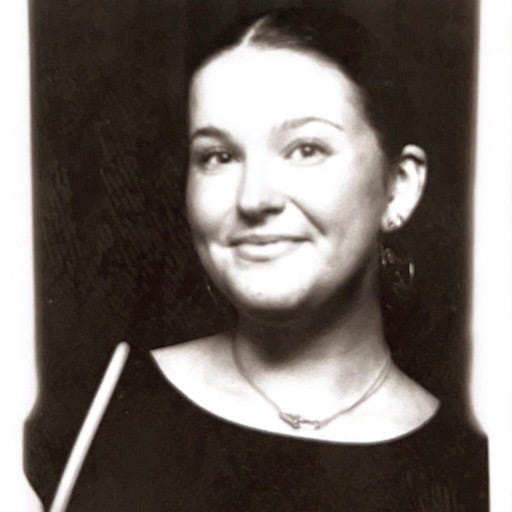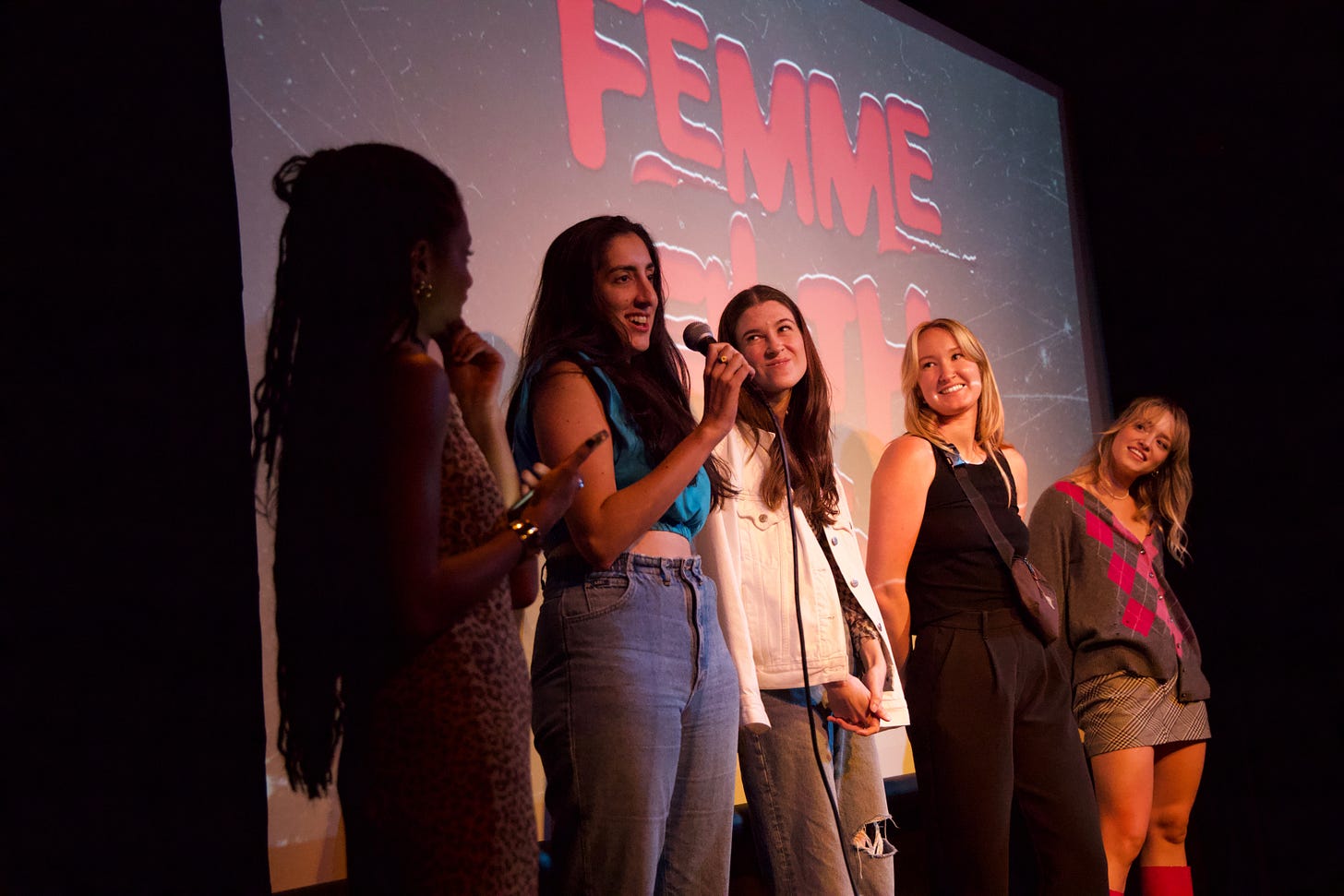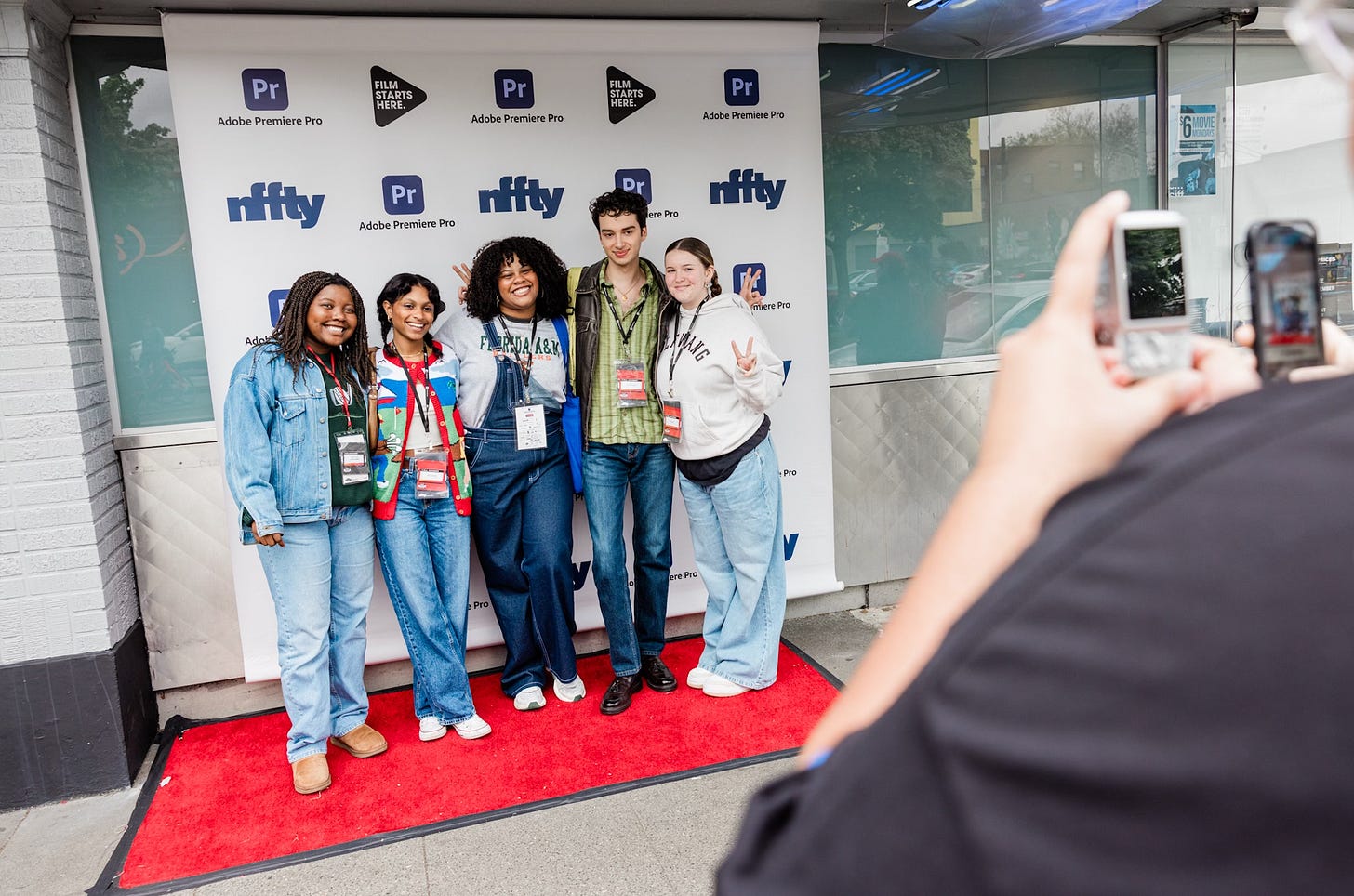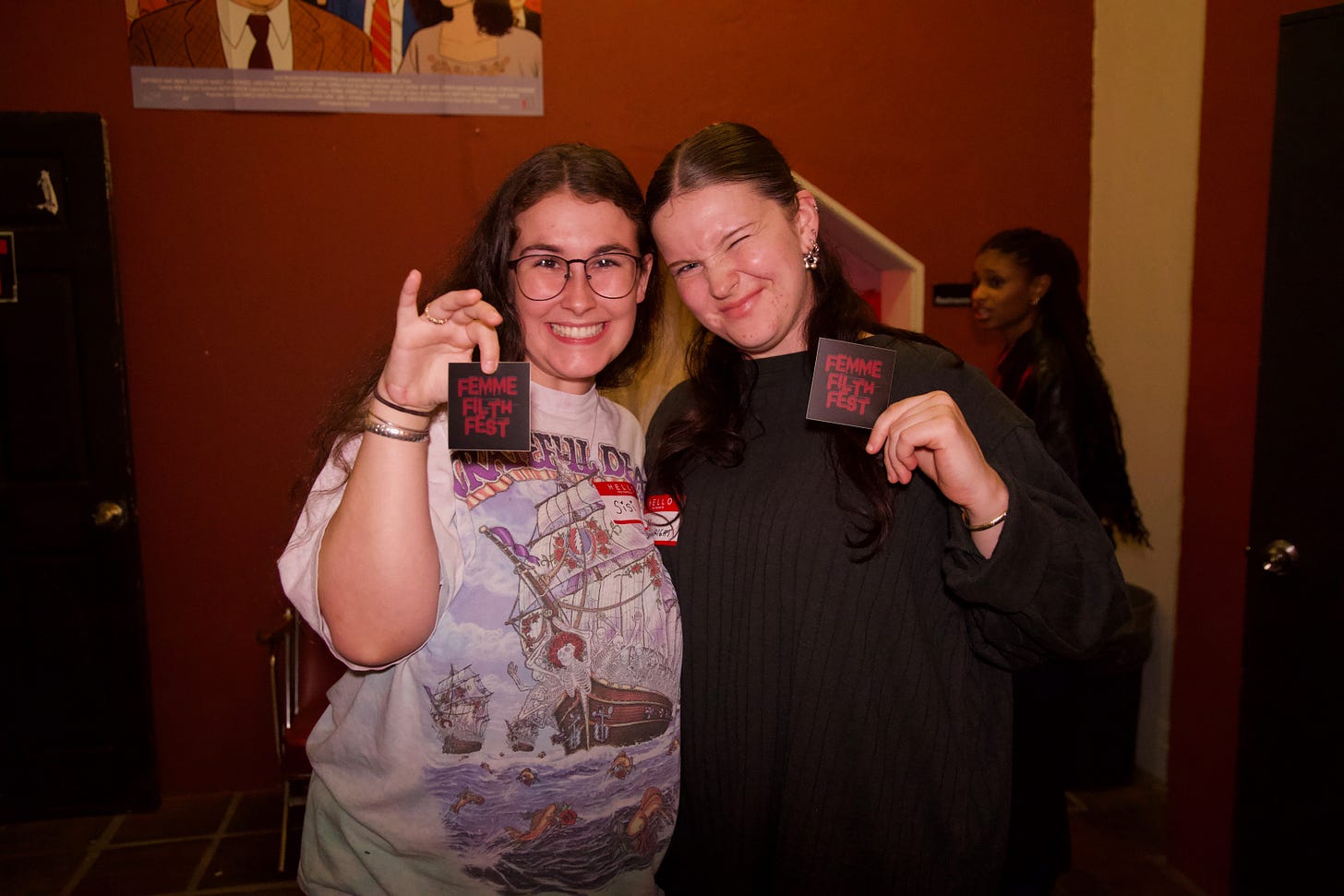We sat down with Abby Wright—founder of Femme Filth Fest, Programming Fellow at Woods Hole Film Festival, screener for NFFTY and American Cinematheque’s PROOF Film Festival, and the newest programmer and host for an upcoming screening series with a major genre festival (details coming soon... stay tuned 👀)—to unpack the selection process, shifting festival trends, and what filmmakers really need to know.
From Filmmaker to Festival Architect
Wright didn’t set out to become a programmer. Like many, she grew up obsessed with films— specifically for her, genre films— the thrill of horror, the bizarre. “I was always seeking out the next weirdest movie that would freak me out,” she says.
Wright originally thought she wanted to be a director. She spent time on many sets, worked on friends’ projects, and even directed a few of her own. But it wasn’t until those films started playing at festivals that something clicked—that was the world she wanted to be in. “It was the best place I’d ever been,” she said. “I loved watching screenings, talking about movies—that was all I wanted to do.”
That passion sparked a bigger realization: many festivals she attended early in her career weren’t built with care or community in mind.
So Wright took matters into her own hands and launched Femme Filth Fest–– an LA-based festival dedicated to screening gross, taboo, transgressive, and provocative films made by women. What started as a DIY solution has since evolved into a respected space for bold voices—and opened doors for Wright’s own programming career.
What Happens After You Hit Submit
A common concern among filmmakers: Are programmers even watching our films?
Wright’s answer is a reassuring one. “Every festival I’ve worked for—every single one—requires programmers to watch films in full. And usually, your film is assigned to at least two or three people before it’s even discussed.”
If there’s a technical issue that prevents a screening, that’s one thing—but otherwise, you can rest assured it’s being seen, at least at the festivals Wright’s at… Shoutout NFFTY, Woods Hole, PROOF, and of course, Femme Filth.
The flip side? This attention to detail may not always get you feedback on your film, and all programmers aren’t always going to be aligned with your vision. That’s not a reflection of your worth—it’s part of the subjectivity of programming.
Red Flags Festivals Notice First
When asked what gets a film rejected immediately, Wright didn’t hesitate: bad sound.
“You can forgive a lot—an unsteady shot, weird dialogue, even plot holes—but bad sound is the number one thing that’ll make a programmer turn it off,” she explains. Sound is often overlooked, yet it’s crucial to immersion and audience experience.
Her second red flag? A film that doesn’t know what it is.
“You need to understand your intended audience and what you’re trying to say. If your film doesn’t have a clear identity, it’s hard for programmers to place it.”
The Truth About EPKs, Cover Letters, and Posters
While supplemental materials like EPKs, posters, and cover letters help polish a submission, Wright makes one thing clear: The film itself comes first.
“A good cover letter isn’t going to change my mind if the film doesn’t work,” she explains. That said, when a programmer is curious about a filmmaker’s intent or perspective, they’ll often turn to the cover letter or artist statement for context.
Having a full press kit signals to programmers that you’ve taken your film seriously—it shows care and professionalism. But it should never be a band-aid for weak storytelling or technical issues.
Big Impact, Small Screenings
Wright spoke candidly about the post-COVID dip in submissions and attendance: “We’ve seen a 38% decline since 2019. That’s massive.”
The rise of YouTube, Vimeo, and digital-first strategies has tempted many filmmakers to skip festivals entirely. But Wright believes this is a mistake.
“There’s still so much value in smaller, niche, regional festivals. You gain real community, collaborators, and visibility—especially if you're an emerging filmmaker.”
Not everyone can get into Sundance, and that’s okay. “You don’t have to hit a top-tier fest to find success. Some of the best relationships I’ve made came from tiny local festivals.”
What the Festival World Needs Now
Wright’s advice to both filmmakers and festival organizers is simple: don’t give up on each other.
Filmmakers should take time to research festivals that align with their story, identity, and audience—or use a tool like Hiike to do so more efficiently. Built by and for independent creators, Hiike is reimagining how filmmakers navigate the festival circuit by offering smart recommendations and centralizing key details that are often scattered or difficult to track down. By streamlining this process, Hiike aims to empower filmmakers to make more intentional choices—and to spend less time spreadsheeting and more time storytelling.
Programmers, meanwhile, need to continue building spaces where emerging talent feels seen, supported, and celebrated.
Niche festivals like Femme Filth Fest aren’t just about screening films—they’re about building a future for film that’s more inclusive, transgressive, and community-oriented.
“I’m very much of the belief that niche film festivals create community and relationships,” Wright says. “They’re not just about getting into Sundance—they’re about finding people who genuinely connect with your work, want to collaborate, and become part of your creative world.”
And with people like her programming the next generation of festivals—we think the future is in good hands.
Where to Keep In Touch
Abby’s email: abbywrightfilms@gmail.com
Femme Filth Fest: https://www.femmefilthfest.com/
The views presented in this article are the sole opinion of Abby Wright and do not necessarily represent the opinions of the organizations/festivals she works for.








